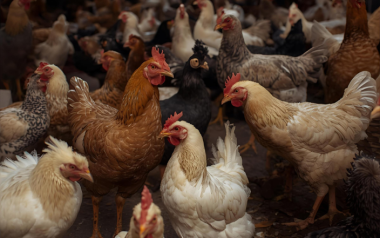Sources: Available upon request
12 Sep 2025
French producers warn of Ukrainian egg imports
French egg producers have raised serious concerns over the importation of Ukrainian eggs that allegedly violate European Union standards.
French egg producers have raised serious concerns over the importation of Ukrainian eggs that allegedly violate European Union standards. The National Committee for the Promotion of Eggs (CNPO), which represents France’s egg industry, has accused several major supermarket chains of selling eggs from Ukraine that breach both EU regulations and French ethical commitments.
- According to CNPO, hundreds of thousands of eggs imported from Ukraine were found to be produced under conditions not permitted in the EU.
- These eggs, labeled with code 3, indicate they were laid by hens kept in battery cages—a practice increasingly restricted across Europe.
- Moreover, inspections revealed traces of antibiotics banned in the EU, raising alarm over potential health risks for consumers.
Retail giants Carrefour and E. Leclerc were named in the controversy. While Carrefour denied selling Ukrainian eggs, E. Leclerc admitted that one of its stores had sold them, calling it an “isolated case” and stating that the products were immediately withdrawn from shelves.
- The issue has sparked broader concerns about food safety and fair competition.
- CNPO President Yves-Marie Beaudet emphasized that while France occasionally imports eggs from EU countries like Spain or Italy, sourcing from Ukraine is problematic due to its non-compliance with EU standards.
- He also warned that the recent imports might be a test to introduce cheaper, lower-quality eggs into the French market.
French Agriculture Minister Anne Genevard has responded by urging the European Commission to strengthen sanitary controls and consider banning imports of eggs containing substances prohibited in the EU. She stressed the importance of protecting national food sovereignty and consumer expectations, advocating for a zero-tolerance policy on banned residues in imported products.
The controversy comes amid rising demand for eggs in France, driven by inflation and the need for affordable protein. Sales have increased by 5% compared to 2024, amounting to roughly 350 million more eggs. Despite this surge, CNPO insists that domestic producers are fully capable of meeting demand without resorting to imports from non-compliant sources.
As the debate intensifies, French authorities and industry leaders are calling for stricter enforcement of EU food safety standards and a reaffirmation of ethical farming practices to ensure consumer trust and fair market conditions.






































